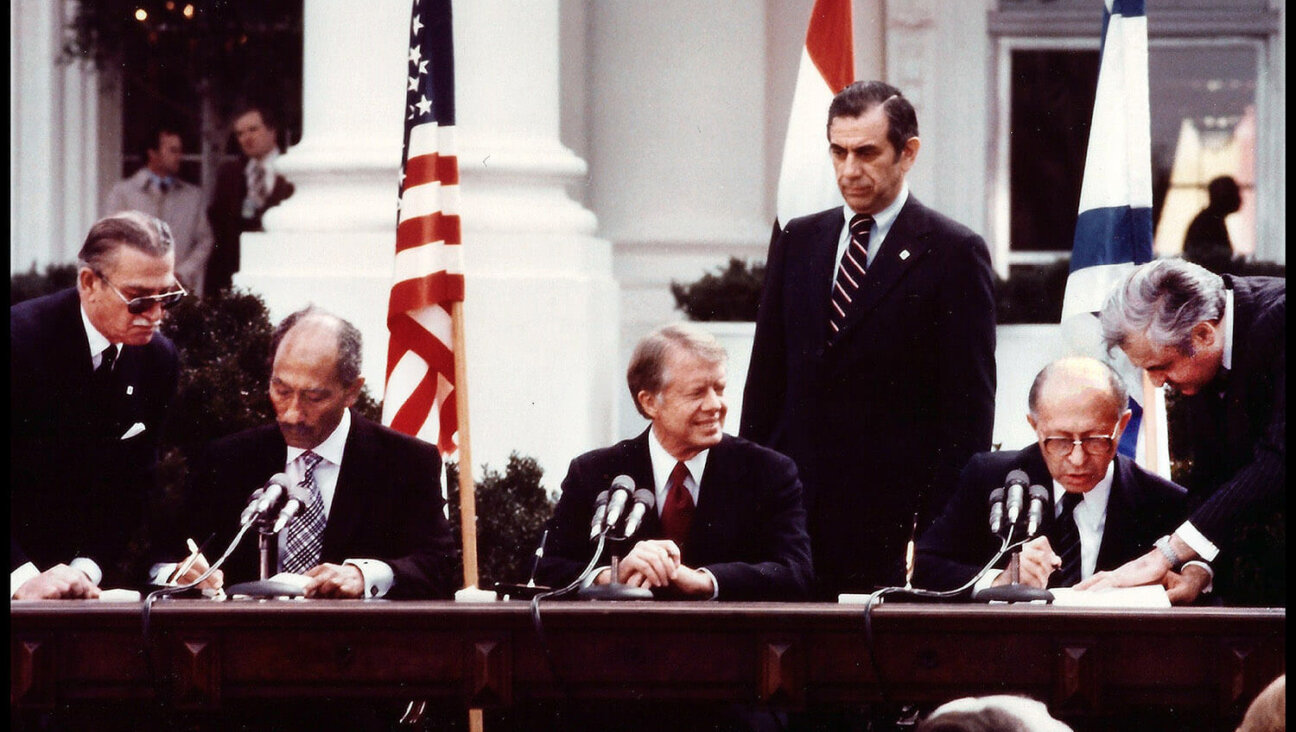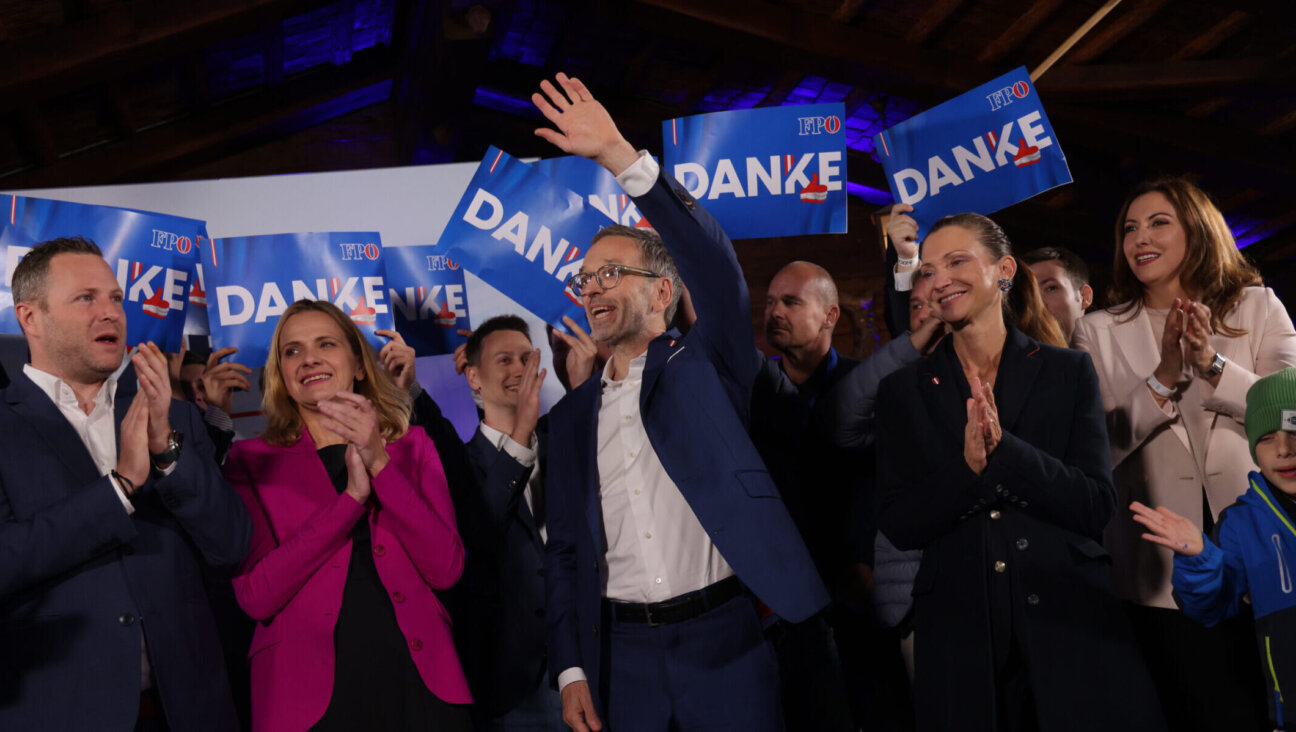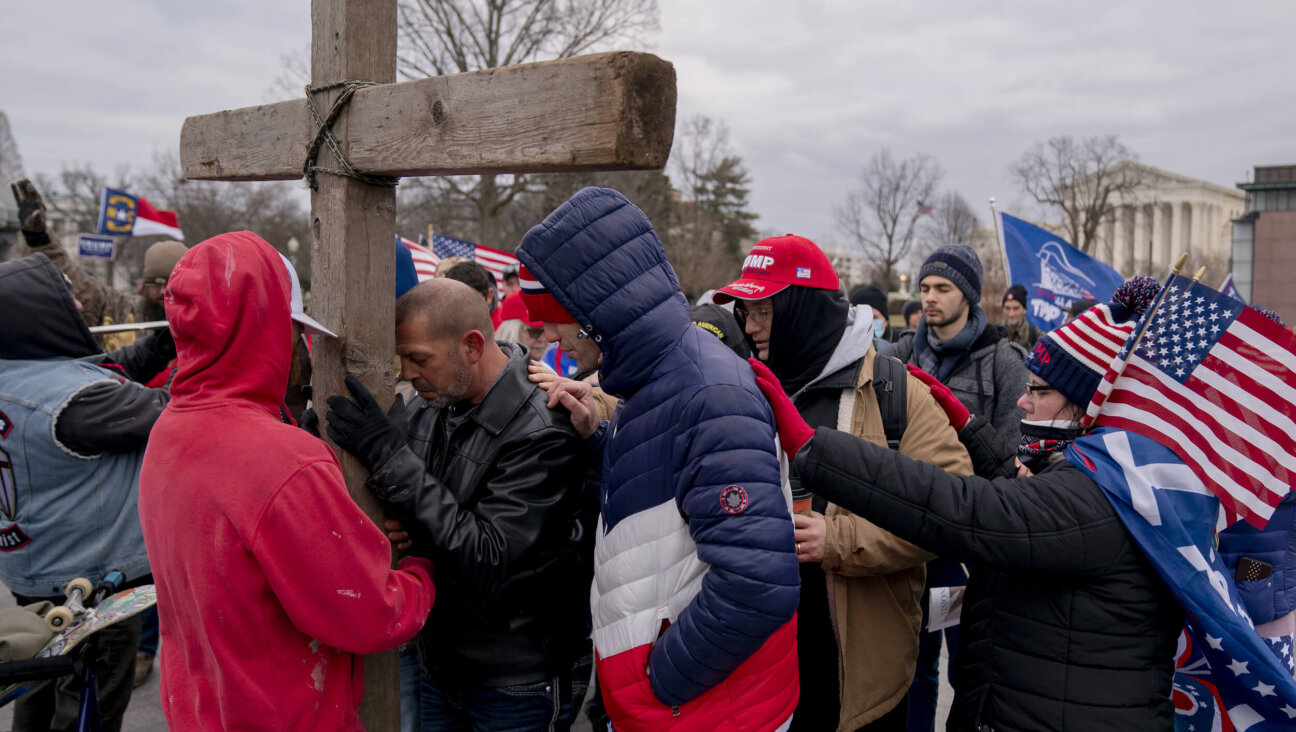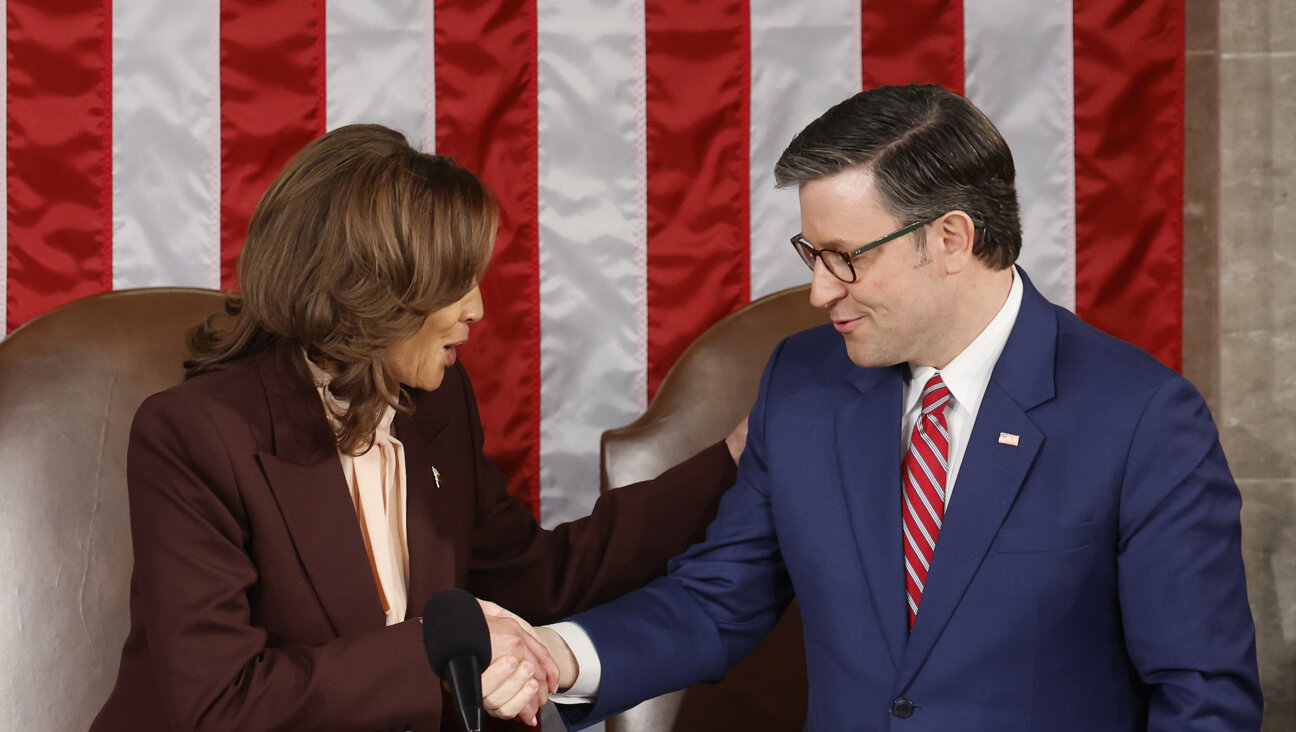On First Day of Conference, AIPAC Defends Bibi, Criticizes Abbas, and Preaches Civility
Lee Rosenberg, AIPAC’s incoming president, is also a close friend of President Obama. On Sunday, when he delivered the evening’s keynote speech at the lobby’s policy conference, he made clear that on the issue of resolving the latest dispute between the Obama administration and the Netanyahu government, he is on Israel’s side.
In his candid remarks to the lobby’s delegates, Rosenberg stressed that Israeli Prime Minister Benjamin Netanyahu has acknowledged that announcing the new housing project in Ramat Shlomo was a mistake and that he had apologized for it “four separate times.” The problem, according to AIPAC’s new president, is with the way this dispute was dealt with afterwards.
“How friends disagree, how they react when missteps occur, that can determine the nature of the relationship,” Rosenberg said. He added that both the U.S. and Israel have a responsibility to work together in order to achieve peace in the region because “that is what allies do.” Furthermore, AIPAC’s leader went on to dispel claims that the building spat exposed Israel as the rejectionist side in the conflict. “Let us be clear,” Rosenberg told the audience, “the reluctant partner in this peace process is not Israel’s elected leader PM Netanyahu. The reluctant partners are the Palestinians and their leader – President Mahmoud Abbas.”
Pointing to Abbas as responsible for stagnation in Middle East peace signals a slight shift in tone by the pro-Israel lobby. While Israel and its supporters have been openly critical of Abbas’s refusal to engage in direct talks with the Netanyhau government, their actions were directed toward isolating Hamas in Gaza and strengthening Abbas and Fatah’s rule of the Palestinian Authority. Abbas, and his prime minister Salam Fayyad, were widely perceived by the U.S. administration and even by Israel, as playing a positive role in promoting peace.
Rosenberg’s address to the conference, which outlined AIPAC’s goals and priorities, can also be seen as a final attempt to frame the U.S.-Israel dispute in a way that maintains a favorable approach toward Israel in the U.S. and demonstrates that when it comes to the Middle East conflict, Israel — not the Palestinians — is the key ally of America.
To guarantee the conflict is, indeed, winding down, AIPAC made a special effort to ensure Secretary of State Hillary Clinton receives a warm welcome from the pro-Israel crowd that has been critical of her conduct in managing the crisis with Israel. AIPAC’s outgoing president, David Victor, called for “discipline” during what he referred to as “difficult times in U.S.-Israel relations.”
Without mentioning Clinton by name, Victor urged delegates to treat all guests at the conference in a courteous manner. “We are not here to protest, we are here to win policy,” Victor said, adding, “we always need to conduct ourselves in a manner worthy of our organization.”
And winning policy, in case that point escaped anyone in the 7,500-strong AIPAC crowd, involves digging deep into the pocketbook. Rosenberg took on this issue at great length, spelling out to AIPAC supporters the nexus between giving money to pro-Israel candidates and achieving the goal of maintaining support for Israel in Congress. “As pro-Israel activists everyone of us should be financially supporting candidates for federal office or our individual choosing, with a clear and direct message to them — ‘I support you because you are pro-Israel.’”
AIPAC is not a political action committee and does not raise money for candidates or endorse politicians.
As for its lobbying agenda, AIPAC delegates were supplied with a clear message to Congress that focuses mainly on the need for robust sanctions on Iran. Activists will ask their congressional representatives on Tuesday to sign a tough-worded letter to the administration calling for immediate sanctions against Iran in order to stop its nuclear program. “Enough is enough,” said Rosenberg in his speech, “Now is the time for harsh, crippling sanctions — sanctions that will make a meaningful difference.”
The use of the term “crippling sanctions” — originally coined by Clinton — puts AIPAC and Israel at odds with the current administration. Clinton and the White House now tilt more toward preferring targeted sanctions aimed at the regime in Tehran and its loyal Revolutionary Guard, instead of broad sanctions that would be felt by all Iranian citizens.
Other issues on AIPAC’s lobbying agenda include the need to renew support for foreign aid to Israel, an issue presented by AIPAC as an investment in America’s interest and “not a gift” to Israel. Delegates will also ask members of Congress to sign letters supporting U.S-Israel relations while calling on the administration to put an end to its public dispute with the Netanyahu government.
Contact Nathan Guttman at [email protected]
A message from our Publisher & CEO Rachel Fishman Feddersen

I hope you appreciated this article. Before you go, I’d like to ask you to please support the Forward’s award-winning, nonprofit journalism so that we can be prepared for whatever news 2025 brings.
At a time when other newsrooms are closing or cutting back, the Forward has removed its paywall and invested additional resources to report on the ground from Israel and around the U.S. on the impact of the war, rising antisemitism and polarized discourse.
Readers like you make it all possible. Support our work by becoming a Forward Member and connect with our journalism and your community.
— Rachel Fishman Feddersen, Publisher and CEO
























